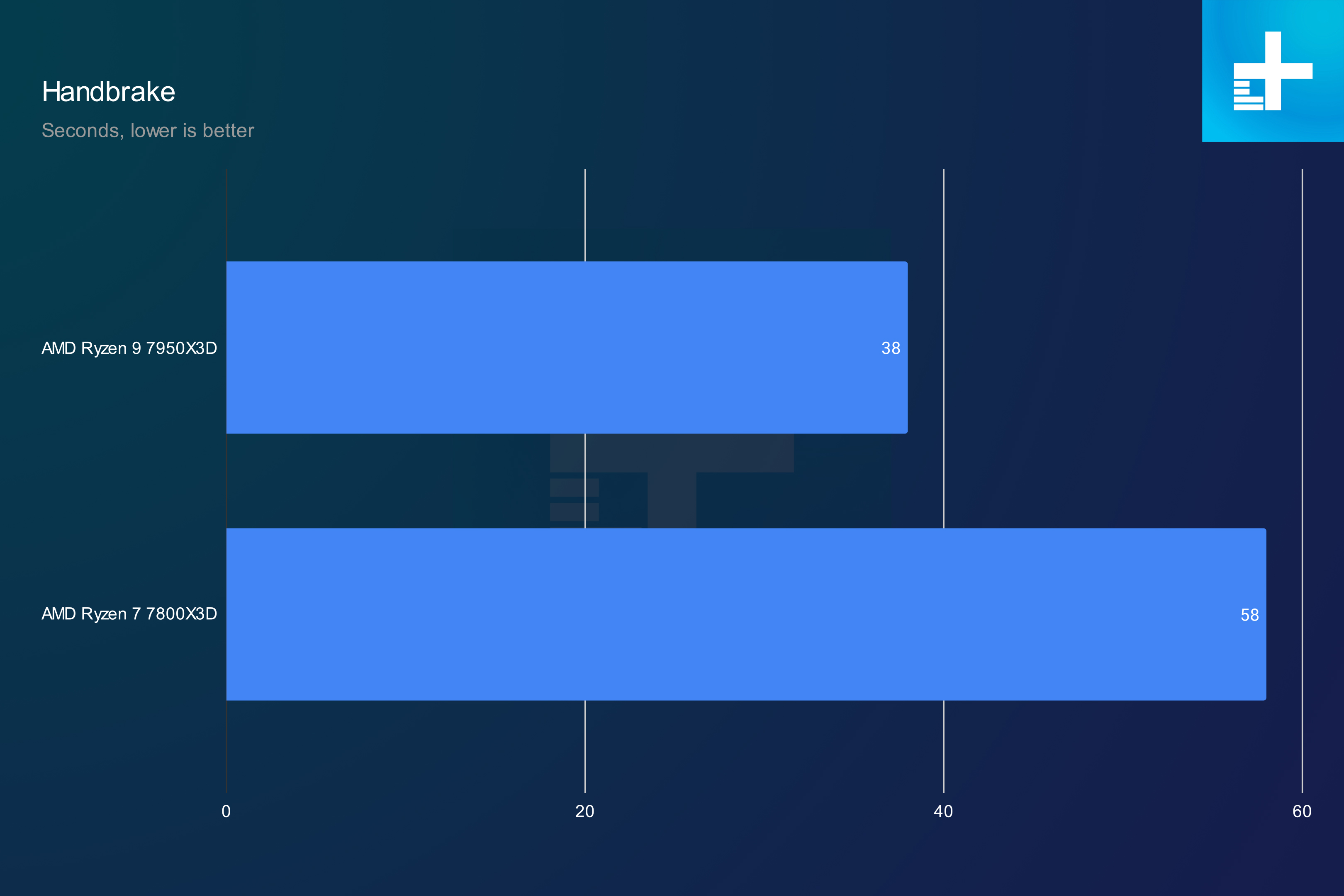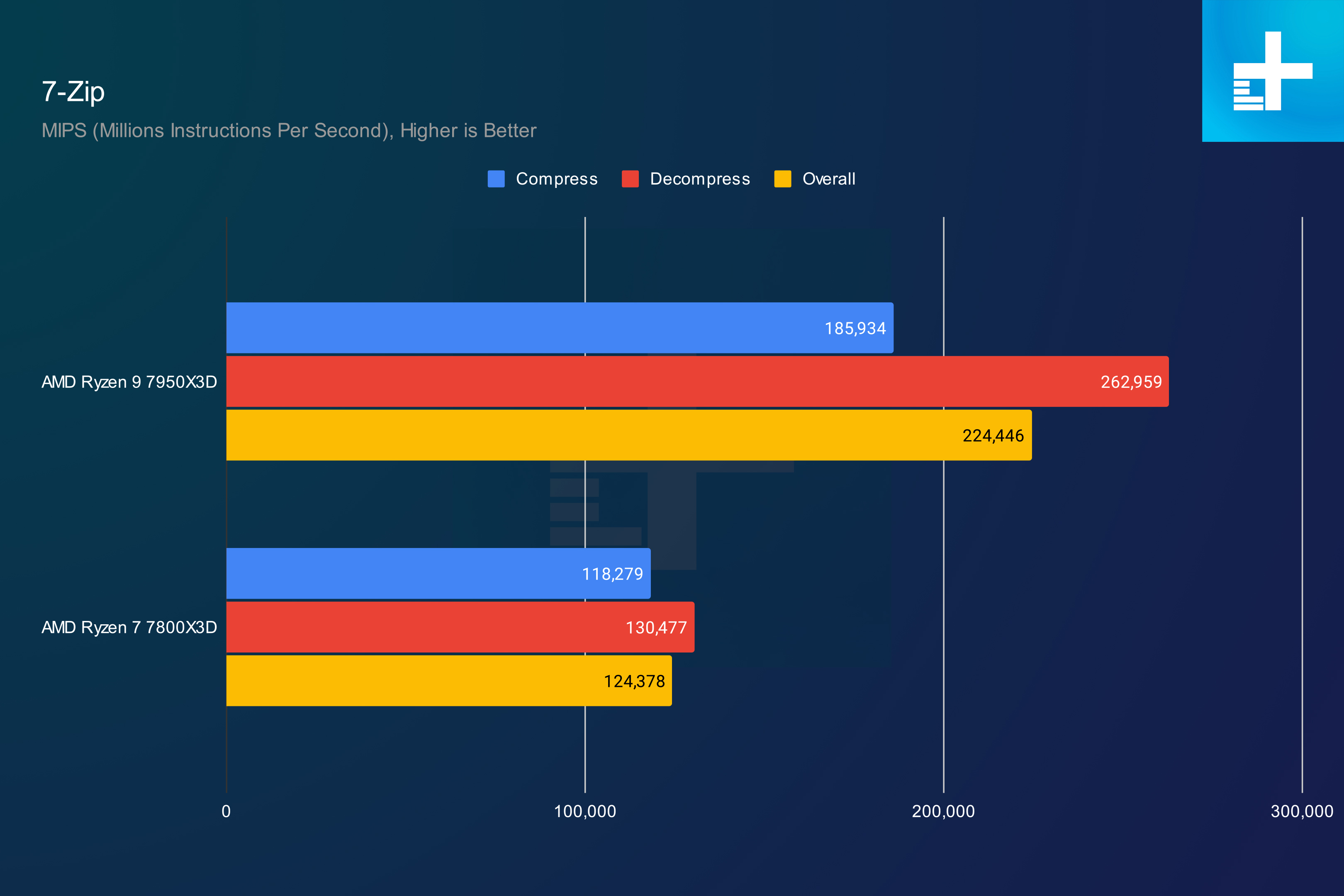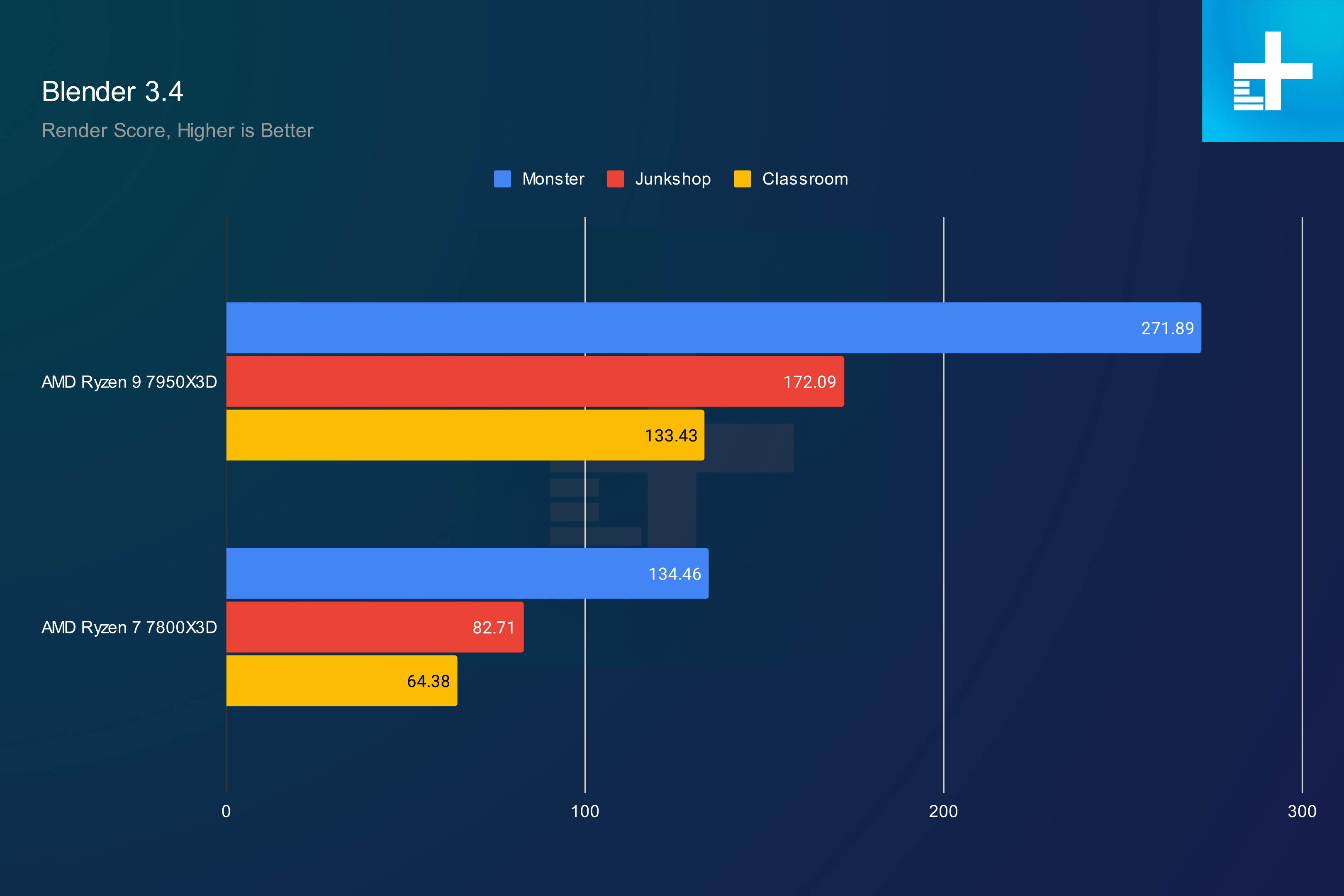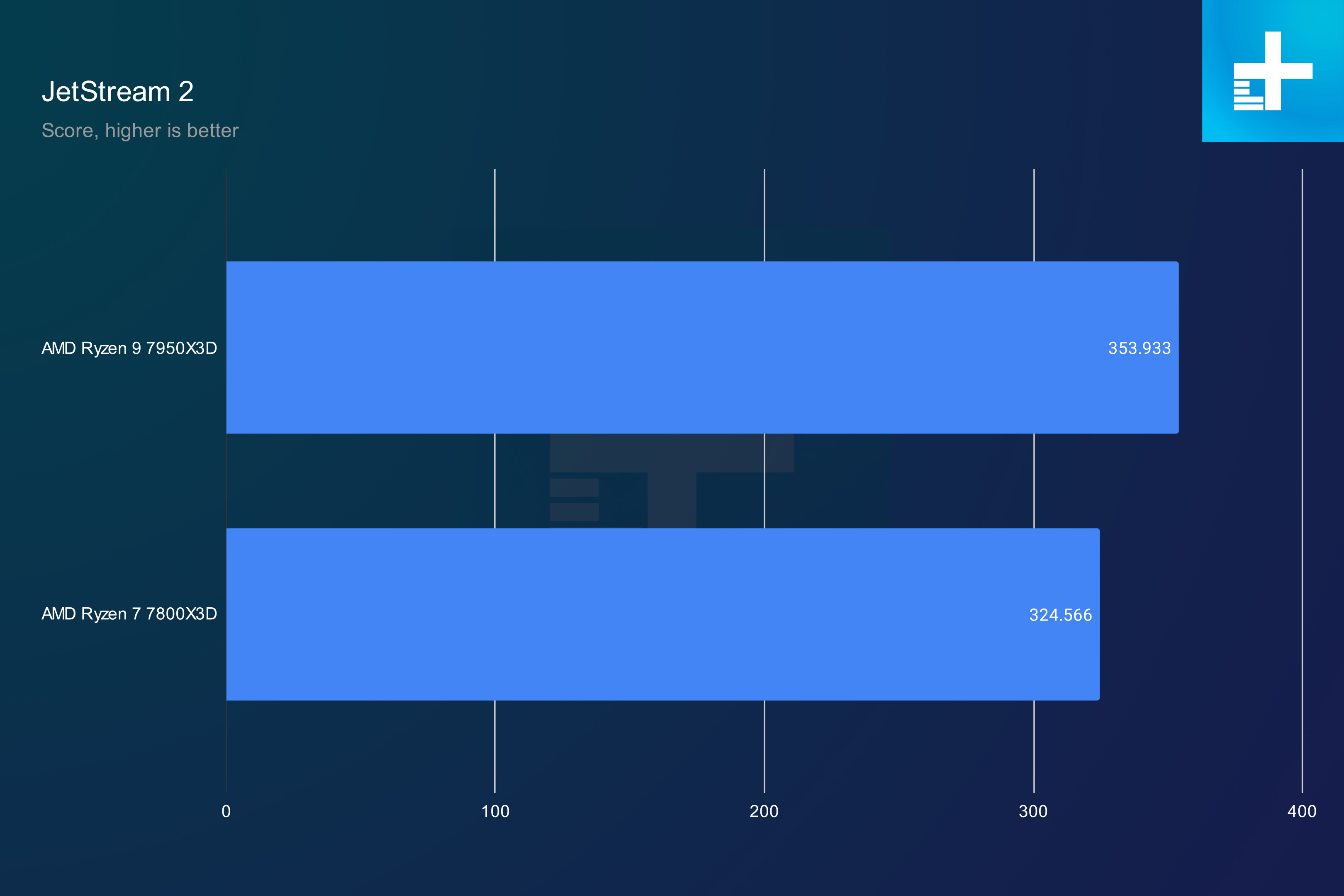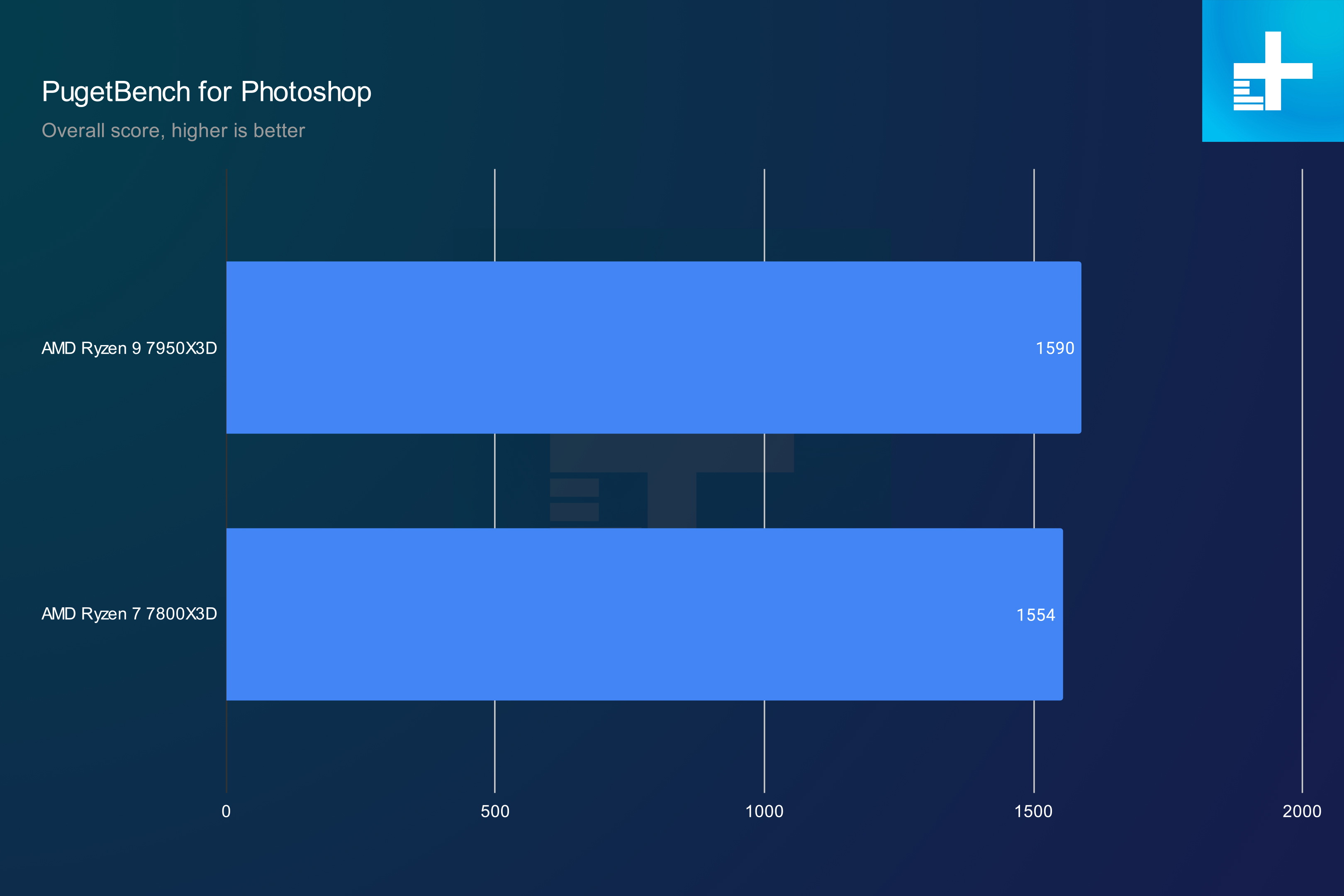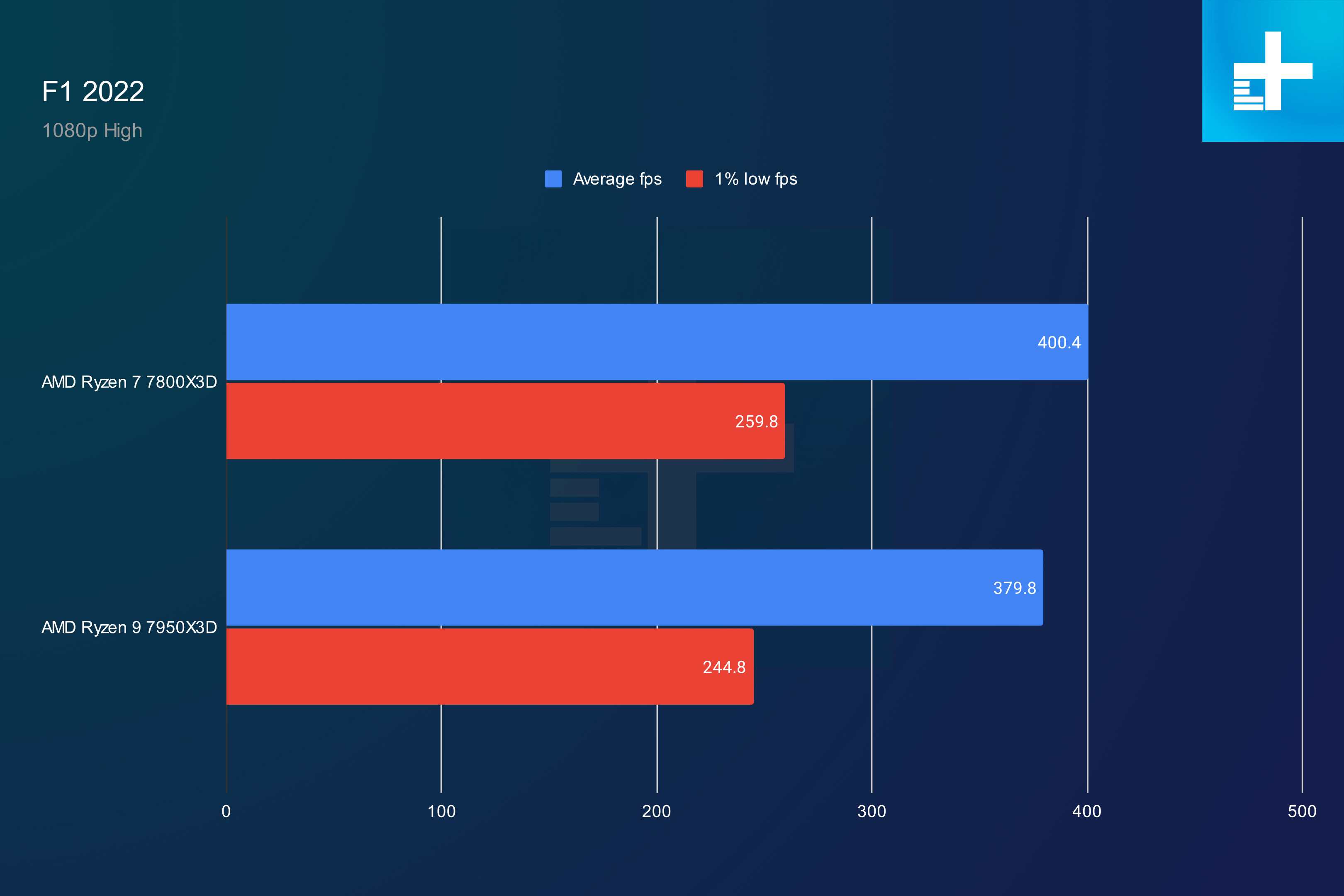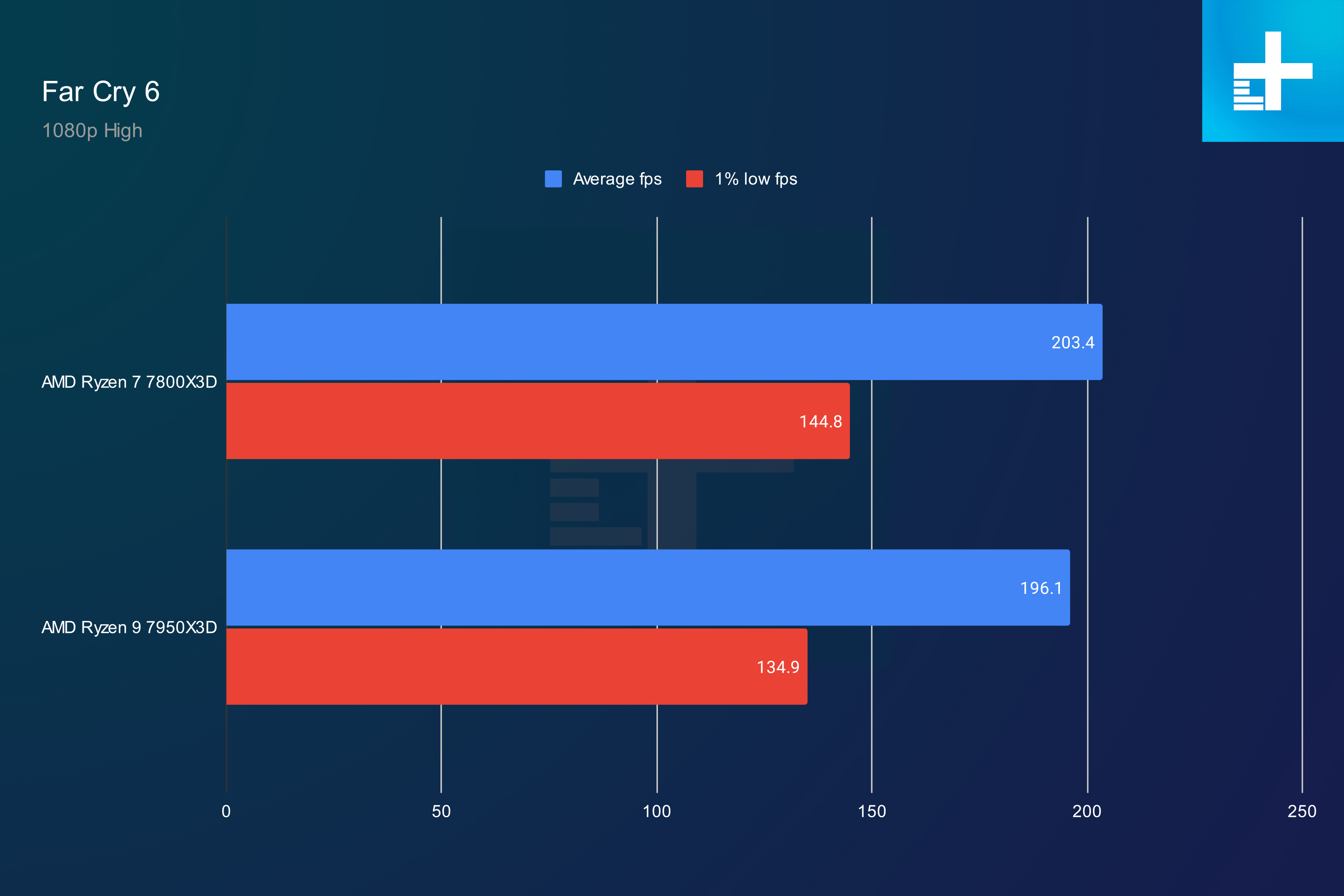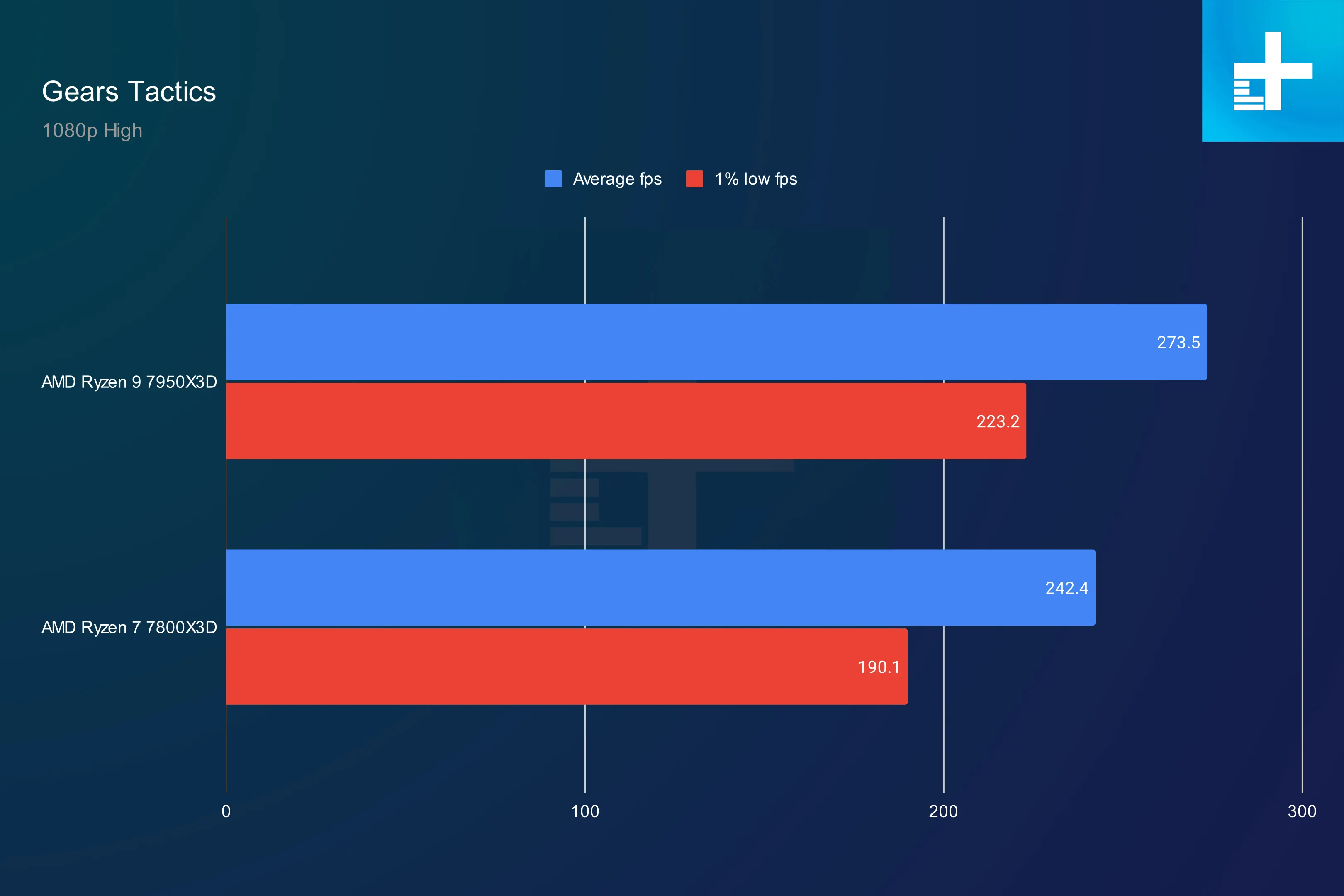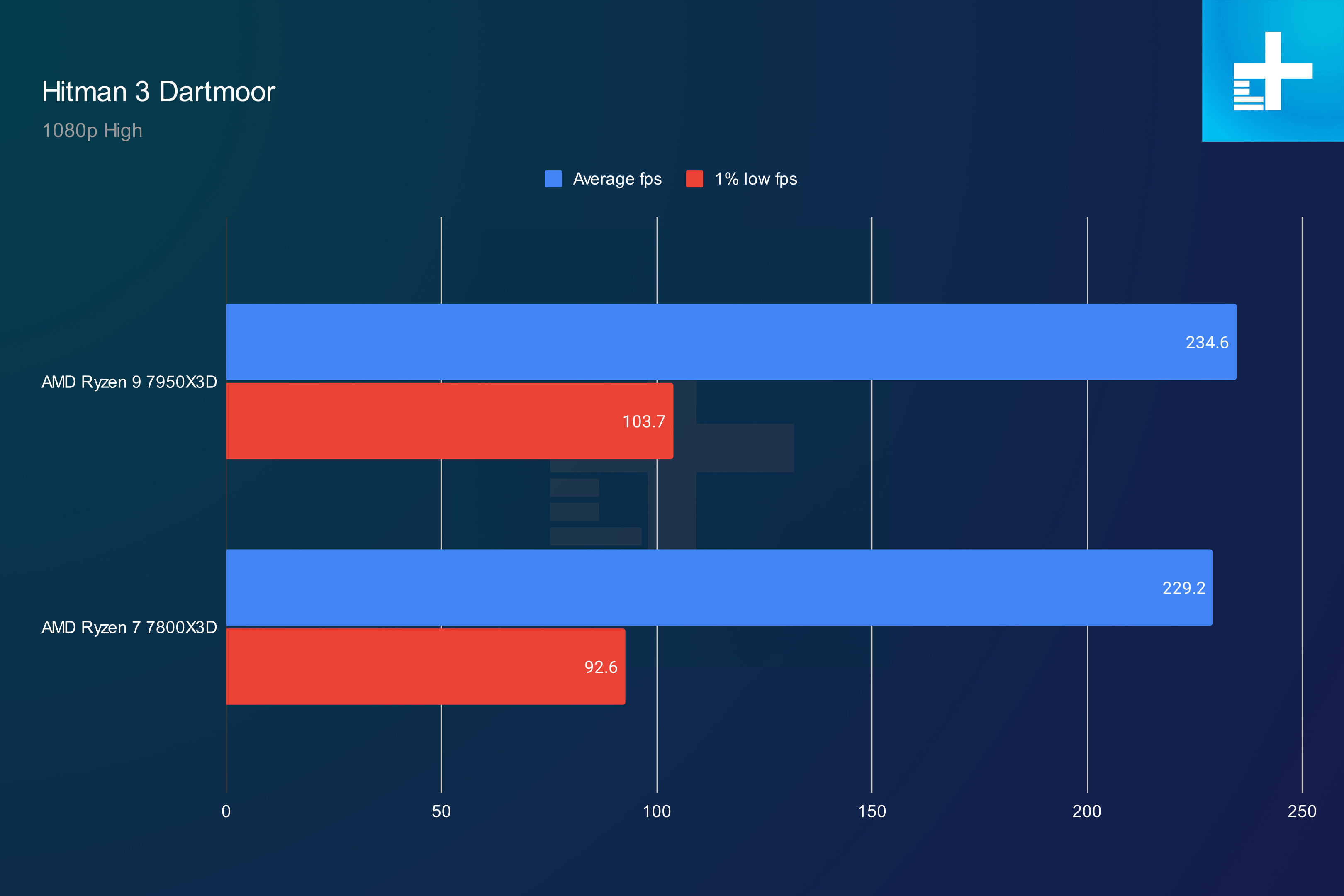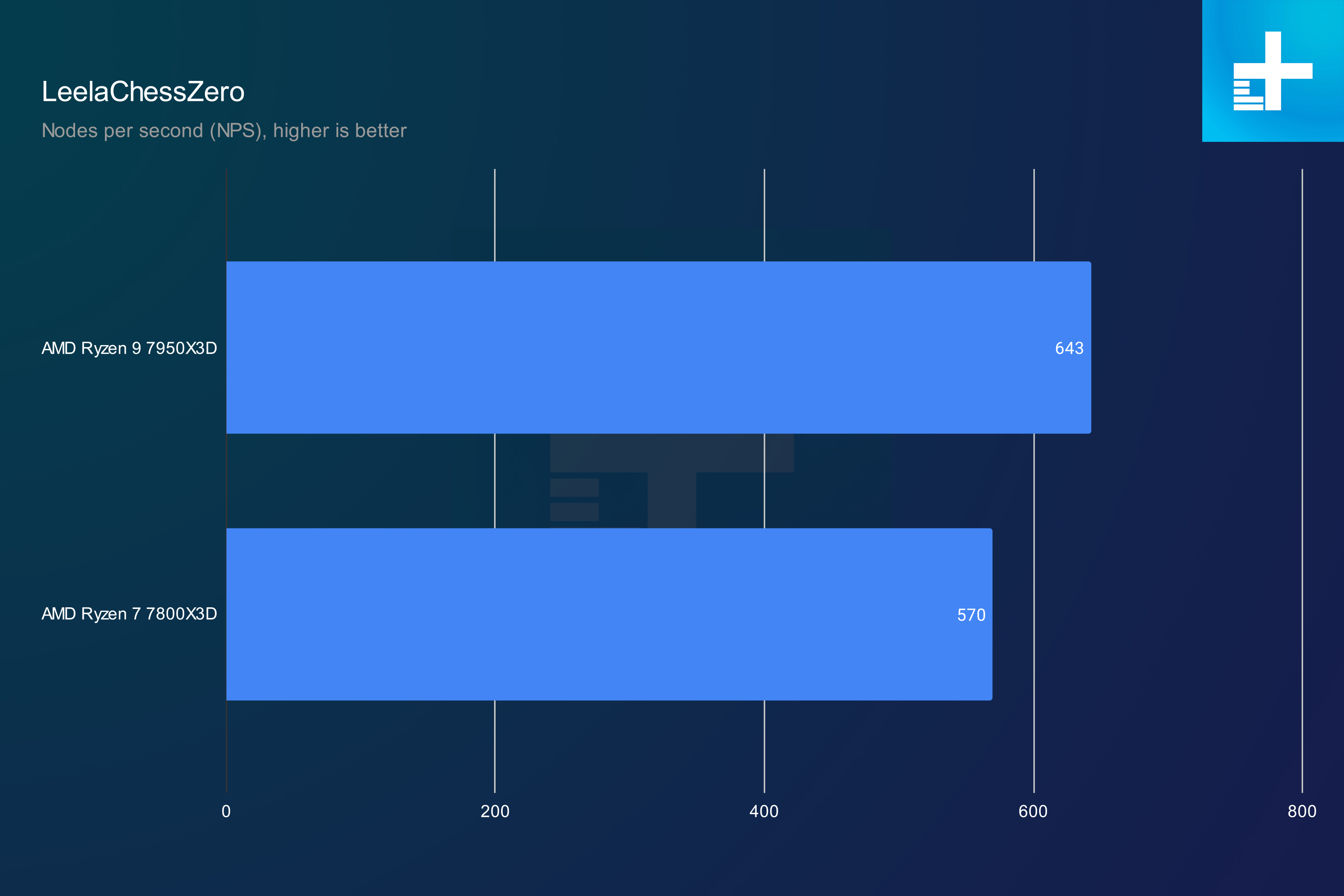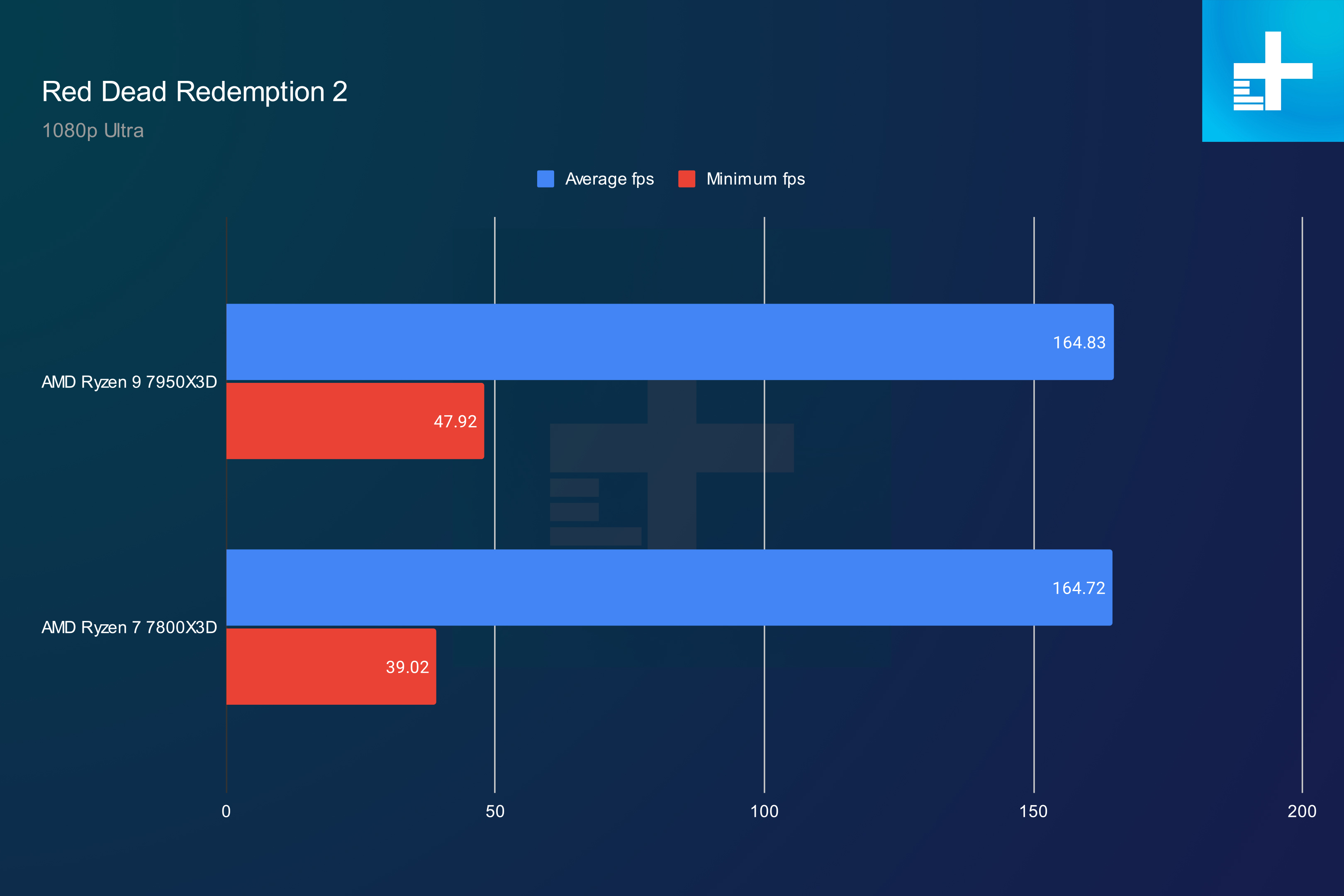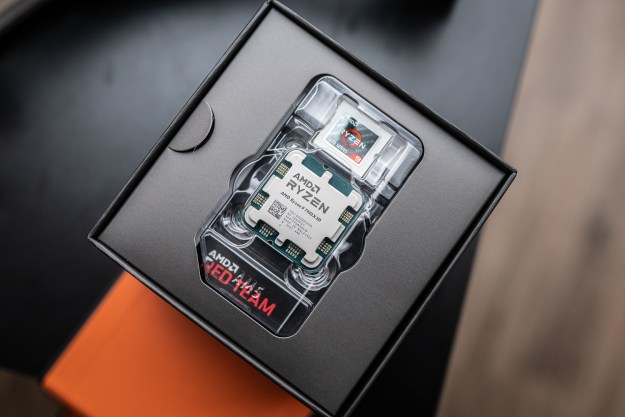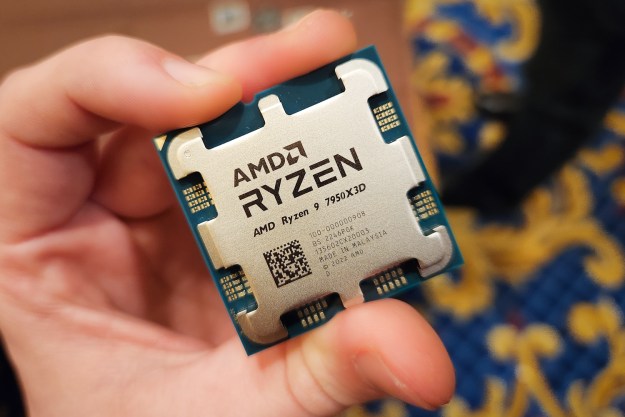It’s no secret that AMD’s 3D V-Cache CPUs top the list of the best gaming processors, but the new Ryzen 7 7800X3D puts AMD shoppers in a precarious position. As you can read in our Ryzen 7 7800X3D review, it tops the charts in gaming performance even if it takes a backseat in productivity power. Is that gap enough to justify spending more on the Ryzen 9 7950X3D?
Even with around $300 separating the Ryzen 7 7800X3D and Ryzen 9 7950X3D, the performance gap between them is much closer than their prices would suggest. I threw them both on my test bench to see if spending up is worth it, and there’s a clear answer — the Ryzen 7 7800X3D is the CPU to buy.
Two different tiers
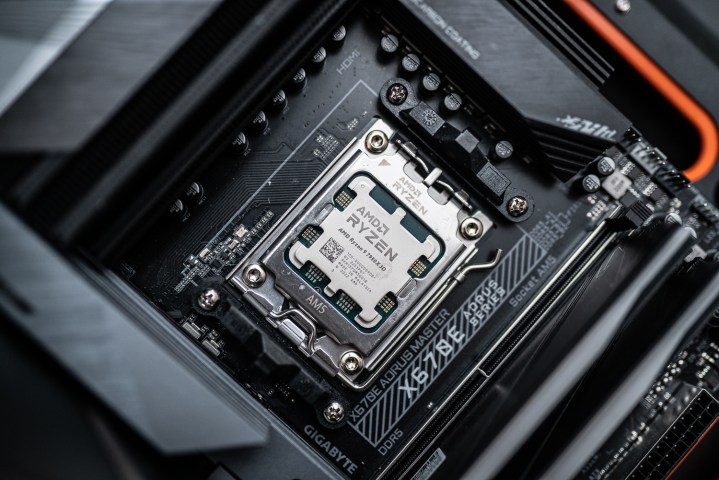
When it comes to pricing, the Ryzen 9 7950X3D and Ryzen 7 7800X3D are clearly in two different tiers. The Ryzen 9 takes up flagship status with a list price of $700, while the Ryzen 7 comes at a much more reasonable $450 (the same price as last-gen’s Ryzen 7 5800X3D).
The price you’ll pay is much different, though. The Ryzen 9 7950X3D sells for between $800 and $850, and although we still need to wait for the dust launch to settle on the Ryzen 7 7800X3D, it will likely sell above list price, as well. Out of AMD’s new 3D V-Cache processors, only the Ryzen 9 7900X3D seems immune to higher prices, selling for around $20 less than what it originally launched at.
Even with fluctuating prices, you should expect the Ryzen 7 7800X3D to run around $300 less than the Ryzen 9 7950X3D. That immediately puts the Ryzen 7 chip in the lead for value, but there’s a little more to the story than just price.
Specs are important here

Specs make a big difference, and the Ryzen 7 7800X3D and Ryzen 9 7950X3D are a good showcase of that. Both processors use AMD’s Zen 4 architecture, but they come with vastly different core counts. The Ryzen 9 7950X3D comes packed with 16 cores and 32 threads, while the Ryzen 7 7800X3D only has half of that — eight cores and 16 threads.
That’s the largest difference, but there’s a little more going on outside of core count. For starters, clock speed. The Ryzen 9 7950X3D can boost up to 5.7GHz, which is the same boost clock speed as the base Ryzen 9 7950X. The situation for the Ryzen 7 is much different.
| Ryzen 9 7950X3D | Ryzen 7 7800X3D | |
| Cores/Threads | 16/32 | 8/16 |
| Boost clock speed | 5.7GHz | 5GHz |
| Base clock speed | 4.2GHz | 4.2GHz |
| Cache (L2 + L3) | 144MB | 104MB |
| TDP | 120W | 120W |
| Price | $700 | $450 |
It only boosts up to 5GHz. That’s fast, but the cheaper Ryzen 7 7700X can climb all the way up to 5.4GHz. That makes a fairly large difference in the single-core speed of the Ryzen 7 7800X3D, which I’ll dig into later.
Outside of clock speed, there’s a large gap in cache. Both the Ryzen 7 7800X3D and Ryzen 9 7950X3D carry AMD’s 3D V-Cache, which stacks additional cache on top of the processor to boost gaming speed. The Ryzen 9 chip just comes with more. It has a total of 144MB of L2 and L3 cache, while the Ryzen 7 7800X3D has a total of 100MB.
That’s a fairly large gap, but it doesn’t have a big impact on performance, at least based on my testing. The extra cache could help in some apps, but most games and CPU-intensive applications are designed to run on much smaller cache pools.
Multi-core muscle
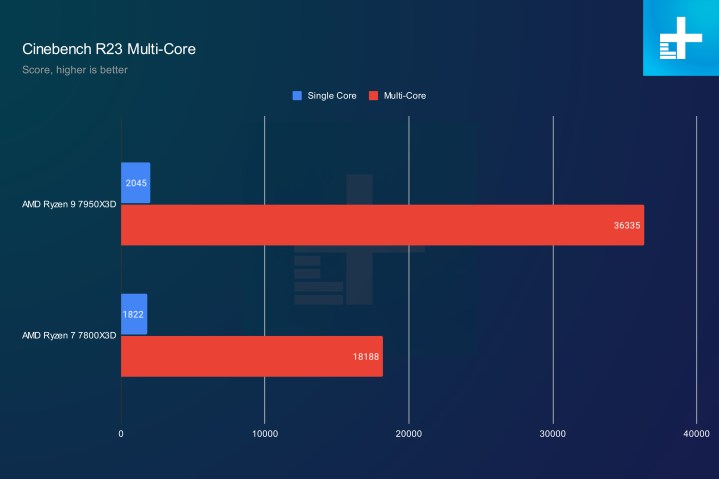
It shouldn’t come as a surprise, but applications that can take advantage of multiple cores will always favor the 16-core Ryzen 9 7950X3D. At a high level, Cinebench is a good illustration of that with the Ryzen 9 7950X3D blowing past the Ryzen 7 part with nearly double the score.
This is also a good test to show the single-core slowdown the Ryzen 7 7800X3D experiences due to its slower clock speed. It’s still fast, matching the single-core speed of the Ryzen 5 7600, but it’s not as fast as AMD’s most recent flagship processors.
That behavior carries over into other applications. Blender, Handbrake, and 7-Zip all benefit from higher core counts, allowing the Ryzen 9 7950X3D to shoot ahead by raw core advantage. The wins aren’t always as stark, though. In Y-Cruncher, which I used to calculate 500 million digits of Pi on the CPU, the Ryzen 7 7800X3D is much closer in both single and multi-core speed.
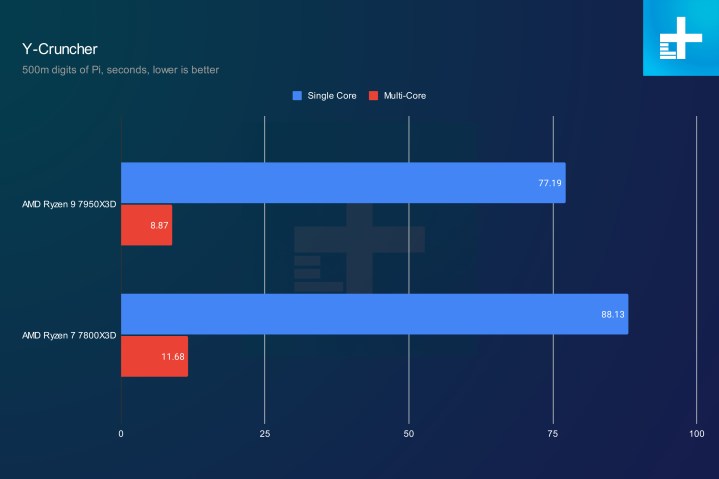
Further testing drives that point home. Jetstream, for example, is a web-based benchmark that tests 64 browser-based applications. Here, the Ryzen 9 7950X3D is only ahead by about 9%. Compare that to last-gen’s Ryzen 7 5800X3D, which is behind AMD’s latest flagship by 26%.
Similarly, the Ryzen 7 7800X3D and Ryzen 9 7950X3D posted almost identical scores in PugetBench for Photoshop, both blowing past last-gen’s Ryzen 7 5800X3D by more than 50%.
There’s a lot to digest in the productivity performance gap between the Ryzen 7 7800X3D and Ryzen 9 7950X3D. On one hand, raw, multi-core power will always favor the Ryzen 9 part. This includes intense video editing and encoding, compression, and rendering tasks that will take all the resources that are available.
However, there’s more to the performance story. With more and more applications moving into browsers, Jetstream is solid proof that the Ryzen 7 7800X3D isn’t as far behind as local applications suggest. Similarly, Photoshop shows a more realistic view of creative performance, pushing a lot of the work off onto the GPU. It’s true that the Ryzen 9 7950X3D is faster in apps like Premiere Pro and Blender, but most of these CPU-intensive tasks have some sort of GPU acceleration available that’s usually leagues faster.
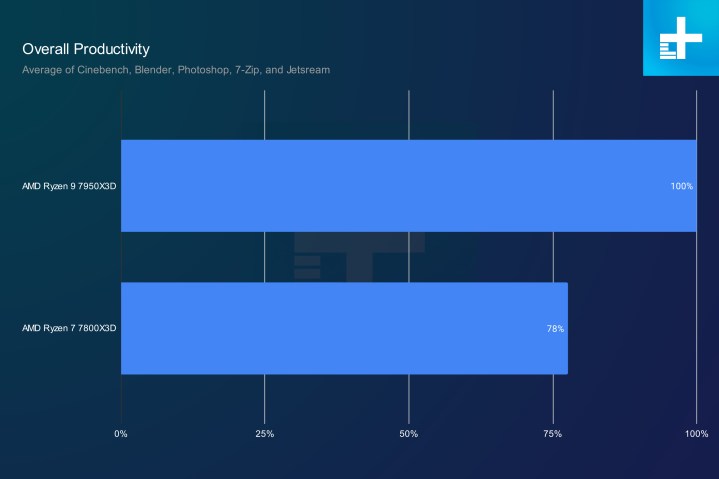
If you factor in everything, the Ryzen 9 7950X3D doesn’t look as fast as it does at first glance. Normalizing all of my productivity benchmarks reveals that the Ryzen 7 7800X3D is around 22% slower than the Ryzen 9 part. It’s true that the 16-core Ryzen 9 7950X3D has some serious multi-core muscle, but it only matters if you frequent apps that can take advantage of all of those cores.
A gaming monster
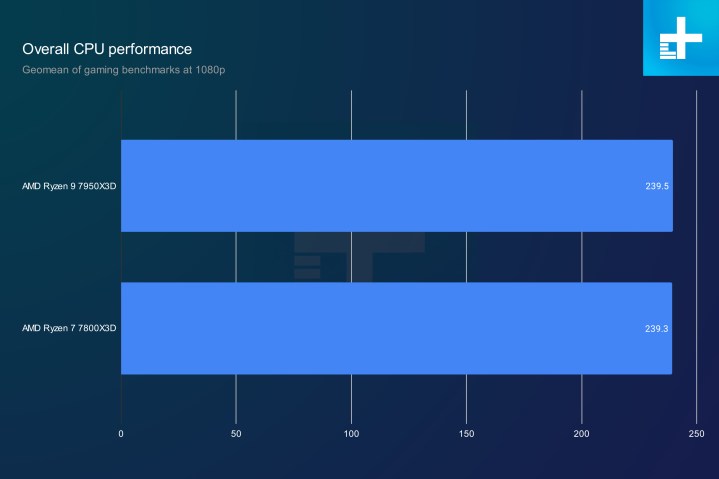
Gaming is where the value of the Ryzen 7 7800X3D really starts to shine. In a synthetic test like 3DMark Time Spy, the higher core count of the Ryzen 9 7950X3D still wins the day. Once you get into actual games, though, that story changes quickly.
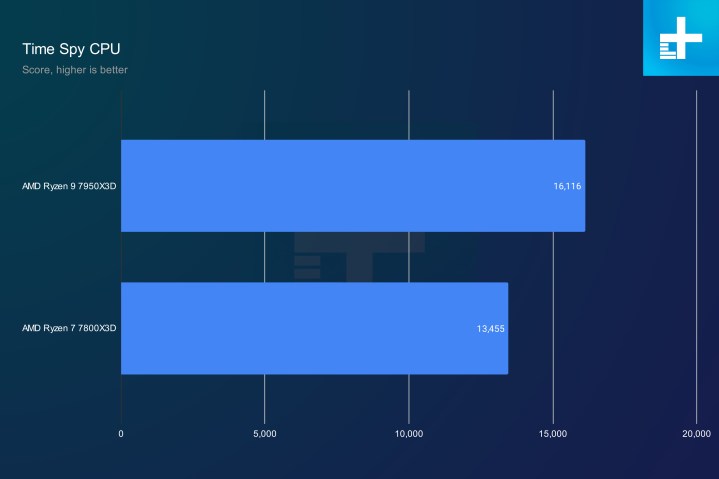
The Ryzen 9 7950X3D enjoyed one major victory in Gears Tactics, where it shot ahead of the Ryzen 7 7800X3D by around 13%. Other games show much tighter margins. In Hitman 3, for example, the Ryzen 7 7950X3D lead by only a few frames. The two processors might as be performing identically.
Identical performance isn’t enough for the Ryzen 7 7800X3D, though. It’s actually faster in some games, as showcased by Far Cry 6 and F1 22. The cheaper processor lead by 4% and 6%, respectively, while costing around $300 less. This isn’t a fluke, either. I retested these games several times and even confirmed my numbers with AMD.
The reason why the Ryzen 7 7800X3D is able to perform as well as the flagship comes down to the fact that it uses a single core complex (CCX). That leads to faster cache-to-cache transfers, according to AMD, helping the Ryzen 7 close the gap in gaming performance compared to the dual CCX Ryzen 9 7950X3D.
Zooming out, you can expect the Ryzen 7 7800X3D to perform just as well as the Ryzen 9 7950X3D. Depending on the games you play, it may skew a couple of points in either direction, but when $300 is on the table, it’s hard to argue with the performance the Ryzen 7 7800X3D is offering.
There’s no contest
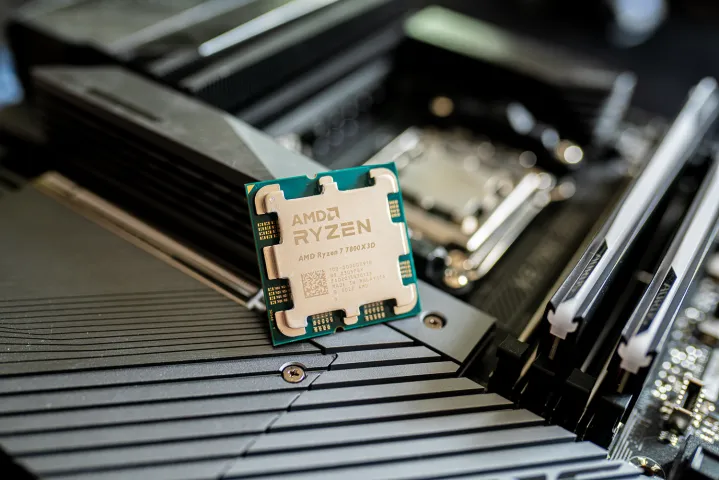
Although the Ryzen 9 7950X3D offers better multi-core might, the Ryzen 7 7800X3D is the clear winner here. It shoots ahead in gaming performance, and although it takes a backseat in productivity, the gap isn’t as large as a few key benchmarks suggest.
Price is what ultimately sets the Ryzen 7 7800X3D apart, however. To save money, you’d have to step down to a Ryzen 7 7700 or Ryzen 5 7600X, both of which are slower in productivity and gaming performance. Meanwhile, there’s competition from Intel in the form of the Core i7-13700K, but again, AMD’s latest processor takes the gaming crown.
There is an argument for the Ryzen 9 7950X3D, particularly if you game as much as you use intense multi-core applications like Premiere Pro. For the vast majority of people, though, the Ryzen 7 7800X3D has plenty of productivity grunt while topping the charts in gaming performance.
Editors' Recommendations
- The best motherboard for the Ryzen 7 7800X3D is cheaper than you think
- I compared all of AMD’s V-cache CPUs to see which you should buy
- The gamers have spoken: AMD obliterates Intel in CPU sales
- AMD’s upcoming Ryzen 5 5600X3D could completely dethrone Intel in budget builds
- Some Ryzen CPUs are burning up. Here’s what you can do to save yours


